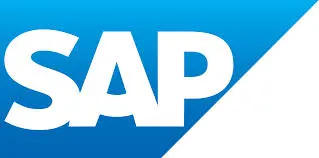Manufacturing Accounting & Bookkeeping Services
Streamline your manufacturing business with Invensis’ expert accounting and bookkeeping services. We specialize in managing complex financial processes and ensuring accurate cost tracking, inventory management, and financial reporting.
Years of Experience
Industry Verticals
Experienced Professionals

.webp)














.webp)

















.webp)


Streamline Outsourced Manufacturing Accounting and Bookkeeping Services with Invensis
At Invensis, we have over 25 years of experience in managing accounting and bookkeeping for manufacturing companies. We specialize in handling the unique accounting challenges of manufacturing operations, such as cost allocation, inventory management, job costing, and overhead tracking. Our team of skilled manufacturing CPAs, bookkeepers, and accountants ensures accurate tracking of production costs, raw material purchases, labor costs, and work-in-progress, helping manufacturers maintain precise financial records.
We implement industry-leading manufacturing accounting software such as QuickBooks, Xero, Sage, and Microsoft Dynamics to automate key processes and streamline workflows. Additionally, we apply best practices in job costing to accurately allocate costs to specific production jobs, ensuring that each project is tracked for profitability. Inventory management is another critical aspect we handle, using advanced tools to monitor stock levels, track raw materials, and manage work-in-progress inventories with precision.
Furthermore, we generate comprehensive reports, including balance sheets, profit and loss statements, income statements, and cash flow analyses, to offer a clear view of your business's performance. Our manufacturing accounting team also assists in forecasting and budgeting, helping manufacturers plan for future expenses and investments. With our support, businesses can achieve better financial control, optimize resource allocation, and focus on growth and innovation in a competitive market.
As a leading provider of accounting & bookkeeping services for manufacturing companies, we assist in achieving financial management in the following ways:
- Implementing automated accounting software to reduce human error, speed up data entry, and provide real-time financial insights for better decision-making in manufacturing operations.
- Integrating inventory management with manufacturing accounting systems to ensure accurate tracking of raw materials, work-in-progress, and finished goods to avoid stock shortages or overstocking.
- Standardizing processes for recording transactions streamlines financial tracking, reduces discrepancies, and improves consistency in reporting across different manufacturing departments.
- Utilizing job costing systems to monitor direct and indirect costs associated with production, allowing for more precise financial analysis and control.
- Conducting regular audits to ensure financial compliance with financial regulations reduces the risk of errors and enhances transparency in the manufacturer’s financial records.
- Automating payroll systems ensures timely and accurate compensation while reducing manual input errors, making payroll management more efficient for manufacturing employees.
- Regularly reconciling accounts receivable and payable keeps financial records up to date, reduces outstanding debts, and improves cash management for manufacturing operations.
Our Comprehensive Manufacturing Accounting Services
- Accounts Payable
- Accounts Receivable
- Payroll Processing
- Cost Accounting for Manufacturers
- General Ledger Maintenance
- Support In Product Profitability Calculations
- Resource And Inventory Management
- Financial Reporting for Manufacturing
- Manufacturing Overhead Tracking
- Budgeting
- Audit Trail
- Compliance Support
Request a Quote
Finance and Accounting Tools We Specialize In
During your consultation, some of the issues we can discuss are:
- How we specialize in cost accounting for manufacturers, including tracking raw materials, work-in-progress, and finished goods.
- Our strategies to analyze your past financial data, production schedules, and sales forecasts to create accurate cash flow projections tailored to your manufacturing cycles.
- Steps we take to handle fluctuating payroll requirements, including overtime, seasonal hiring, and compliance with labor laws.
- How we routinely perform cost variance analysis to identify discrepancies between expected and actual production costs.
Why Choose Our Manufacturing Accounting & Bookkeeping Company?
Invensis is a trusted leader in delivering finance & accounts outsourcing services for manufacturing company owners. Our team of experienced manufacturing professionals understands the complexities of manufacturing operations and offers in-depth expertise in inventory management, cost accounting, and financial reporting. We are committed to delivering personalized financial service, ensuring your financial records are up-to-date and compliant with all regulations. As a result, businesses leveraging our manufacturing industry accounting services experience a 30% reduction in manual accounting errors, a 25% improvement in cost-tracking accuracy, and a 20% increase in financial reporting efficiency.
Here are the advantages of outsourcing accounting and bookkeeping for manufacturers:
1. Managing High Transaction Volumes: Manufacturing firms often handle complex, high-volume transactions that are difficult to track and reconcile. This requires constant oversight, which may overburden internal teams, leading to delays in reporting and potential errors. With inventory management, purchase orders, and multi-tiered pricing, the accuracy of records can become compromised.
Outsourced accounting for manufacturing firms implements advanced accounting systems with built-in automation for high transaction volumes. Their expertise in handling these intricacies ensures faster and more accurate transaction processing, enhancing real-time decision-making and financial accuracy.
2. Managing Cost Allocation Across Products: Cost allocation in manufacturing involves correctly assigning indirect costs (like overhead, labor, and materials) to different products or departments. Internal teams often struggle with managing these allocations due to fluctuating production cycles and changing material costs, which can cause incorrect financial reporting.
Outsourcing bookkeeping and accounting services for manufacturers brings specialized tools that automate cost allocation processes. They improve accuracy in assigning costs to products, ensuring better margin analysis and profitability tracking. These tools help streamline financial workflows, giving management clearer insights into product performance.
3. Effective Cash Flow Forecasting: Cash flow management is particularly challenging in manufacturing due to delayed customer payments, varying production cycles, and large upfront investments in materials and equipment. In-house teams may struggle to create reliable cash flow forecasts, leading to liquidity issues.
Outsourcing specialized services for manufacturing and distribution provides sophisticated forecasting models tailored to manufacturing needs. They analyze historical data, sales cycles, and expenses to offer accurate cash flow projections. This proactive approach helps businesses better manage liquidity, ensuring smoother operations and investment planning.
4. Efficient Inventory Valuation: Inventory management in manufacturing is intricate due to the diversity in product lines, materials, and production stages. Internal teams often find it challenging to correctly value raw materials, work-in-progress, and finished goods, leading to discrepancies in financial statements.
Outsourcing advisor and consultant in industrial manufacturing leverage advanced valuation techniques for inventory like FIFO, LIFO, and weighted averages to ensure accurate financial representation. Manufacturing accounting services provide detailed inventory tracking systems that integrate seamlessly with accounting platforms, ensuring transparency and minimizing financial discrepancies related to stock management.
5. Effective Handling of Multi-Currency Transactions: Manufacturers working with global suppliers and customers often face multi-currency complexities. Fluctuating exchange rates, differing tax treatments, and accounting for currency conversions in financial reports can be overwhelming for in-house accounting teams.
Outsourced manufacturing and distribution accounting experts have systems in place for automating multi-currency transactions and maintaining compliance with global accounting standards. Manufacturing bookkeeping services help streamline international financial processes, improving accuracy in currency conversion and financial reporting while reducing the risk of currency-related losses.
6. Accurate Financial Audits: Internal financial audits in manufacturing are complex due to the high volume of transactions, various cost allocations, and compliance needs. Internal teams may lack the resources or experience to implement thorough audit processes, increasing the risk of financial misstatements.
Outsourced accounting for manufacturing companies brings audit-ready processes and comprehensive internal control systems tailored to manufacturing accounting and bookkeeping functions. Their expertise helps identify potential audit risks early, providing companies with accurate, organized financial records and making the audit process smoother and more transparent.
The latest trends in accounting and bookkeeping for manufacturing companies are listed below:
- Cloud-based Solutions: The adoption of cloud platforms for accounting processes is growing. Cloud-based ERP systems like NetSuite and Workday Adaptive Planning provide scalability and flexibility, improving access to data across teams.
- Sustainability Reporting: Growing demand for transparency in environmental, social, and governance (ESG) metrics has led manufacturers to enhance their reporting practices, integrating sustainability data into their financial systems.
- AI-driven Accounting: AI is reshaping the industry by automating complex tasks like auditing, tax preparation, and risk management. This minimizes human error and shifts accountants' focus to strategic roles, boosting operational efficiency.
- Blockchain Integration: Blockchain is gaining traction for secure, immutable transaction recording in manufacturing accounting. It reduces fraud risks, strengthens audit trails, and could streamline complex supply chain financial tracking by removing intermediary layers.
- Real-Time Payments: There is a rise in demand for real-time payments. Manufacturers are integrating faster settlement solutions into their accounting processes to streamline payments and reduce transaction latency across supply chains.

This blog accounts receivable turnover ratio will introduce you to the basics of AR turnover ratio and how you can use it to better your balance sheet.
Read More ->
Trends and techniques in accounting are always changing, especially as new technologies emerge. SAGE has found that 90% of accountants think accounting is going through a cultural shift that favors technology.
Read More ->

A trial balance serves as a vital tool in accounting by providing an overview of financial health. Explore the best ways to create and analyze it here.
Read More ->

Explore 7 proven accounting best practices for businesses to navigate the financial landscape with confidence and realize growth and stability.
Read More ->
Learn how a 3PL company improved efficiency by partnering with Invensis and minimizing errors in AP and AR invoice processing.
Download Now->

Know how Invensis provides accurate accounting & bookkeeping services for a restaurant which helps effective cost monitoring and growth.
Download Now->

Other Accounting And Bookkeeping Services we Serve
Contact Information
You can reach us at:
Request a Quote
Fill up the form and our team will get back to you within 24 hours.

Enquire with us
Fill out this form to get in touch with our expert team.

























.webp)
